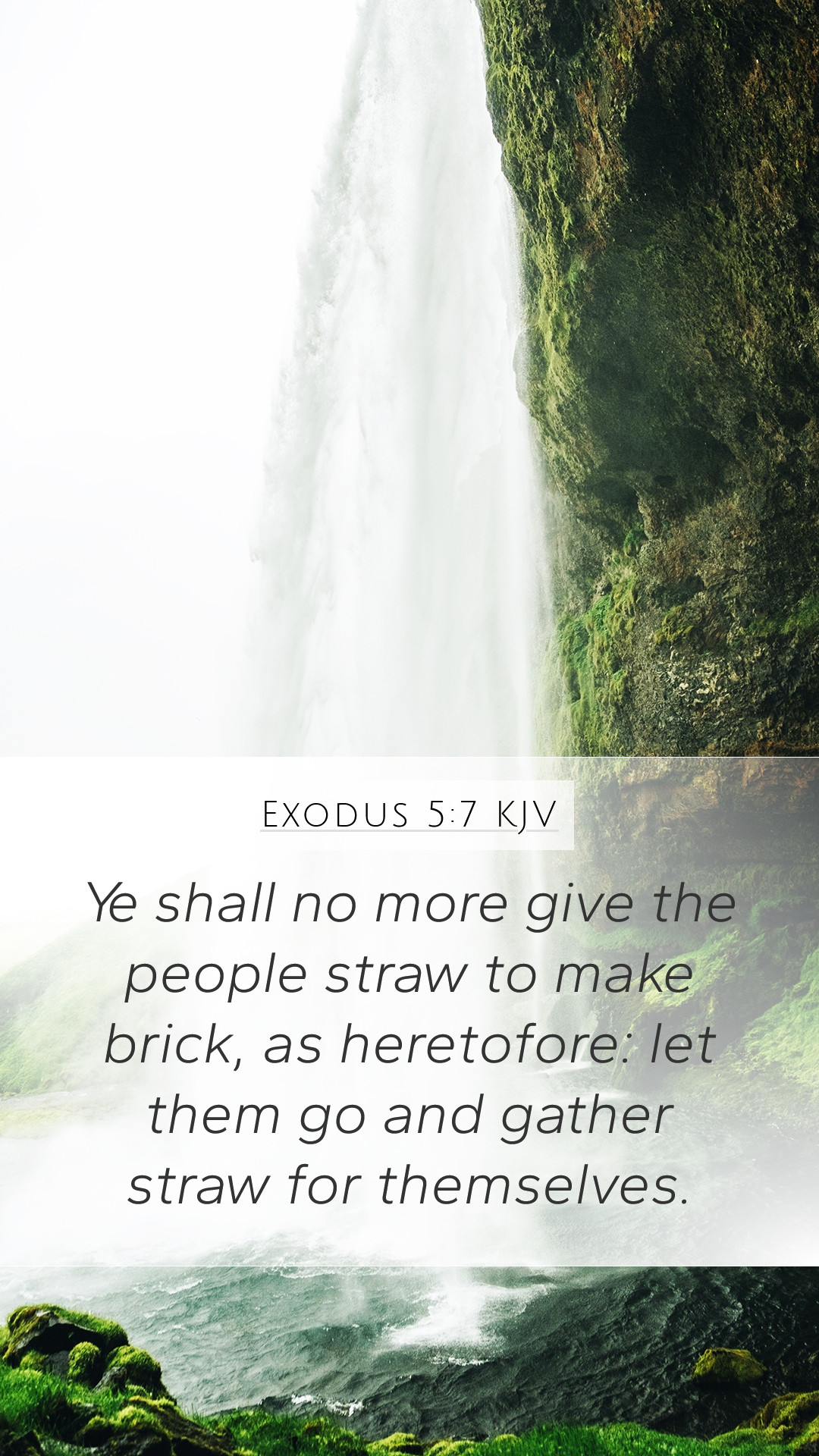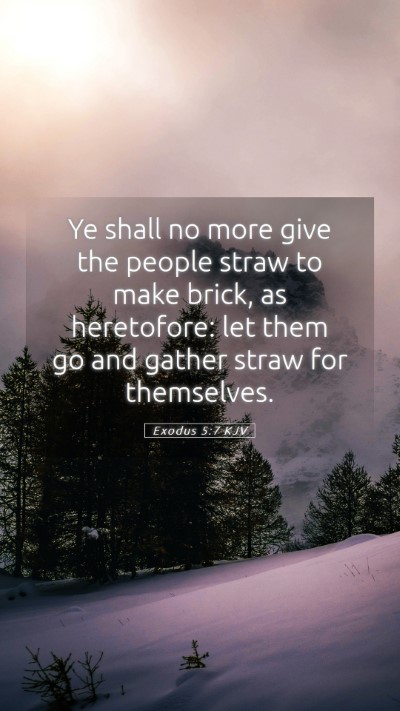Bible Verse Meaning and Commentary on Exodus 5:7
Verse: Exodus 5:7 - "You shall no longer give the people straw to make bricks as before. Let them go and gather straw for themselves."
Understanding the Context
Exodus 5:7 occurs during a pivotal moment in the narrative of Israel's exodus from Egypt. Moses and Aaron have approached Pharaoh with God's command to let Israel go, but instead, Pharaoh increases their burdens. In this command, we see a transition from oppression to the dire consequences of Pharaoh's refusal to acknowledge God.
Bible Verse Interpretations
The meaning of Exodus 5:7 can be dissected through several lenses:
-
Oppression of Israel:
Pharaoh's decree to withhold straw signifies a deliberate intensification of oppression. This represents how authority can exploit laborers by adding to their burdens without concern for their well-being.
-
Divine Sympathy:
In contrast to Pharaoh's cruelty, God's forthcoming deliverance reflects a compassionate response towards His enslaved people. The verse serves as a prelude to God's eventual intervention.
-
Human Resistance:
Despite the hardships, this verse illustrates the broader struggle of the Israelites as they resist Pharaoh's demands. It captures the essence of their fight for freedom against an oppressive regime.
Historical Context
The events surrounding Exodus 5:7 are pivotal in understanding the backdrop of Israel's slavery in Egypt. Egypt was a powerful civilization that thrived on the backs of forced labor, which the Israelites represented. The historical tension set the stage for God's deliverance through Moses, establishing a central theme in the narrative: God's deliverance from bondage.
Insights from Public Domain Commentaries
-
Matthew Henry:
Henry speaks to the profound implications of the increased burdens placed on the Israelites. He points out that this act serves to demonstrate Pharaoh's hardness of heart, showcasing how tyranny often exacerbates the suffering of the oppressed.
-
Albert Barnes:
Barnes emphasizes the significance of straw in brick-making, symbolizing the loss of basic provisions for survival. His insights reveal the depths of the Israelites' oppression and highlight God's sovereignty over their plight.
-
Adam Clarke:
Clarke further analyzes the practicality of Pharaoh's command, suggesting that it highlights the absurdity and cruelty of oppression. He parallels this with God's eventual liberation of His people, illustrating a transformative journey from hardship to hope.
Application of Exodus 5:7
This verse holds significant lessons for believers today, reflecting themes of hardship, resilience, and divine justice:
- Understanding Our Struggles: Just as the Israelites faced challenges, we too may feel overwhelmed by life's burdens. This verse encourages us to trust in God's ultimate plan for liberation.
- Responding to Injustice: Pharoah's actions serve as a stark warning against the oppression of vulnerable communities today. This passage motivates us to stand against injustice in our society.
- Hope and Deliverance: This narrative culminates in God's promise of deliverance, reminding us that no matter how dire our circumstances may appear, God's intervention is always imminent.
Related Bible Cross References
- Exodus 3:7-10 - God's awareness of the Israelites' suffering.
- Romans 8:18 - The comparative nature of present sufferings versus future glory.
- Psalm 34:19 - Assurance that the righteous face many troubles but the Lord delivers them from all.
Conclusion
Exodus 5:7 is a rich text offering multi-layered insights into oppression, resilience, and the promise of deliverance. Its teachings resonate deeply within the context of Bible study discussions, particularly in understanding Scripture’s relevance to both historical events and contemporary struggles.
In conclusion, whether you're part of bible study groups or engaging in online bible study, the analysis of this scripture enhances our bible study insights and fosters a deeper understanding of Scripture.


